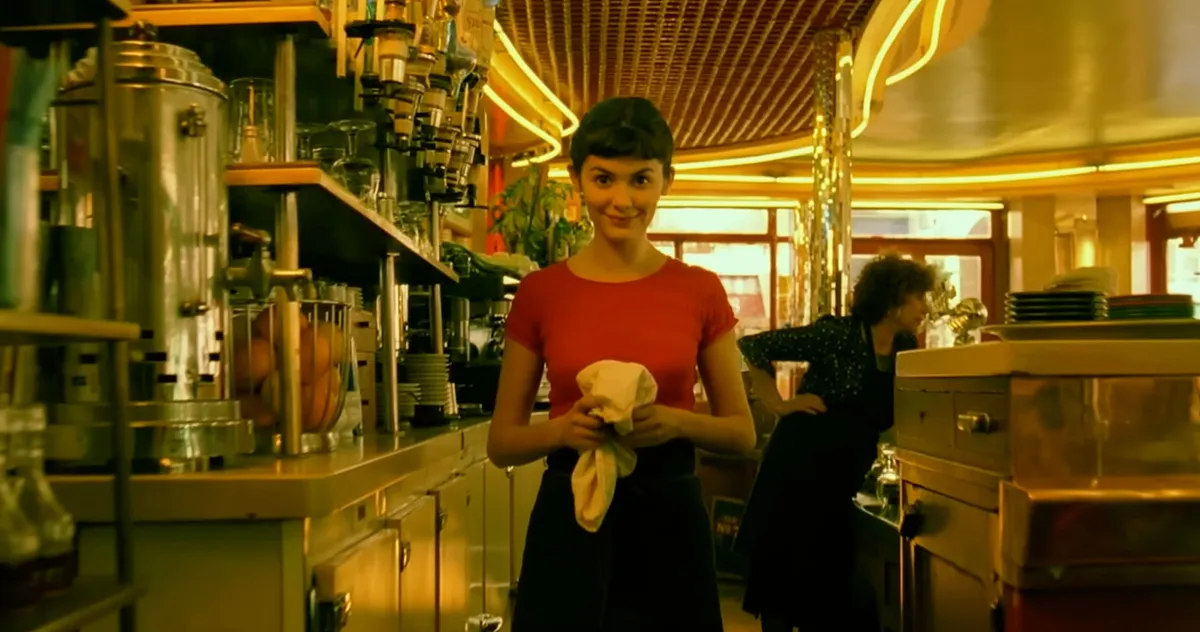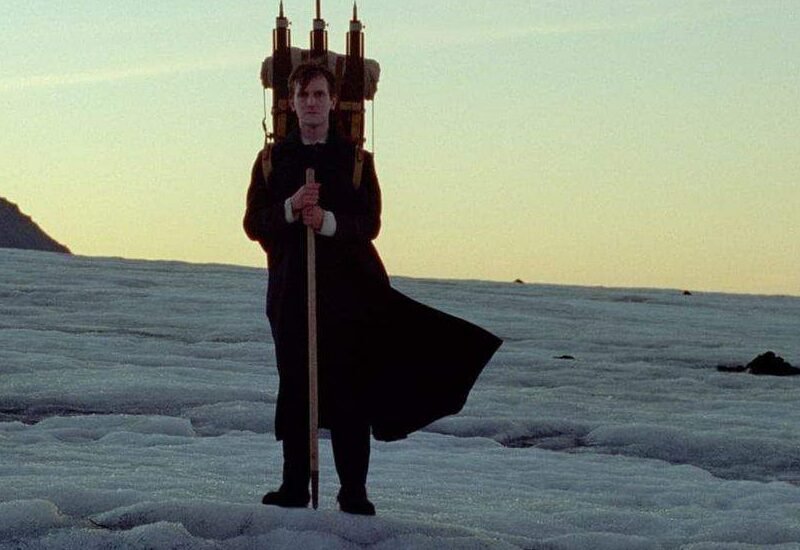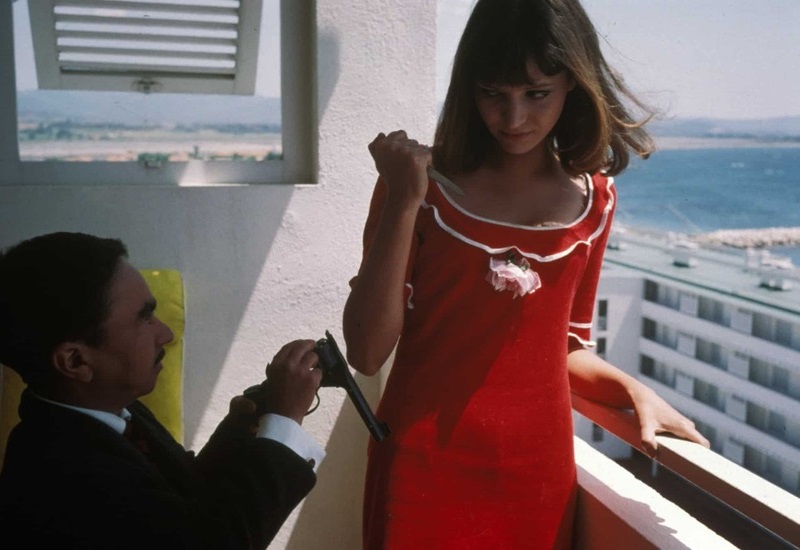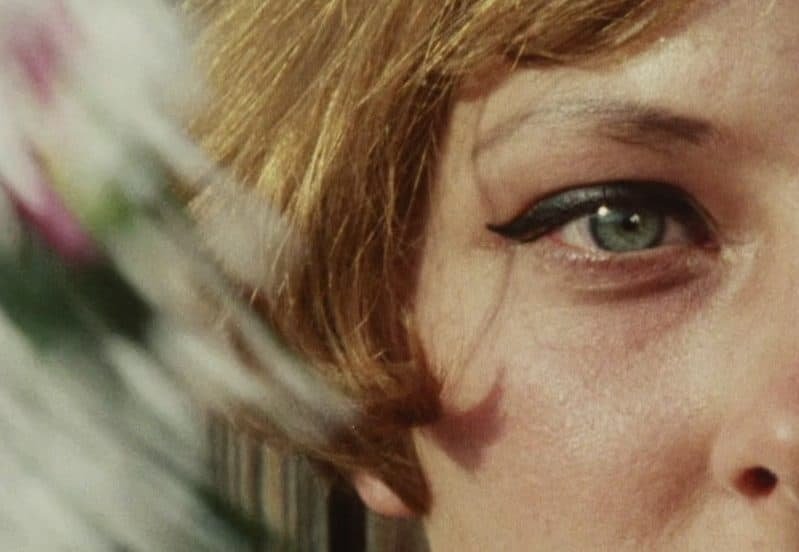amélie review
film by Jean-Pierre Jeunet (2001)
Amelie is a sybaritic wonder of cinematic whimsy, giving us the unique pleasure of savoring a sweet we wish were infinite and would never end. It is an anachronistic microcosm that celebrates the idiosyncrasies of the forgotten and the discarded, romanticizing the unheard voices of those who march to a different beat. These are people never compelled by conventionality, who live outside the realm and limitations of the status quo and tribal consensus of the masses.
Review by Aaron Jones | Jul 05, 2024
We are frequently invited to reflect upon what makes us human, not letting life pass us by through our fear and not letting our nostalgia for the past sink us while we hide away from the rest of the world.
Within the film is a tale of longing that retrospectively reveals some of the building blocks that shape Amelie and gain our affection for her. Through scattered glimpses of the solemn child she became due to tragedy and neglect, we witness how she finds her way out through her prolific imagination, which serves as a protective sphere and distraction from reality. This imagination elicits her unique talent and becomes one of the thematic centerpieces of the film, rousing her fellow Parisians who experience loneliness or longing and bringing them together by instilling a sense of wonder or curiosity within them. She provides them with a different lens through which to see the world.

Amelie’s mission of bringing joy to the weary occupies that special place alongside life’s simple pleasures, achieved through the pursuit of others’ happiness. This mission becomes Amelie’s philosophy and the film’s as well, treating every misfortune or mishap of those in need of her medicine as a new segment of an incomplete fairy tale. She rejuvenates her targets, leading them into a medley of indelible rapture. Her spontaneous and impassioned personality is an invariable component of the film that infuses itself into every character and scenario. Through that playfulness, it becomes intrinsic to the film. We begin to see Amelie not only as the free spirit she is but also as the glue upon which the foundation for her microcosm is built. Harmoniously galvanizing everything she focuses on into personal growth and empowerment, she uses clandestine machinations for those she favors and a gremlin-esque approach to those who revel in oppressing the unfortunate.
Amelie’s appearance may resemble a ripple from the vestiges of Cinema du Look, but its themes are inherently more playful in tone. It incorporates styles and tones that are usually repellent within French cinema, marking a departure from the norm. Jean-Pierre Jeunet’s unusual blend of poetic romanticism is aesthetically unique, and his meticulous devotion to detail is the central component of his signature style. Amelie feels like an intimate valentine to the Nouvelle Vague, executed in a way that creates the characters’ own spontaneity on screen.

Jeunet’s unique cinematic style is a constantly evolving crescendo of subliminally subversive and tangential cyclic setups composing playful and inventive surrealism. The technical execution is enigmatic and suggests an exhaustive process in accordance with detail and the auteurist vision that only delivers through a labor of love and perseverance. The cinematography glimmers with warmth and antiquity through its welcoming use of color. It often gives the feeling of living in a Mucha painting, evoking a mnemonic recalling that I could never quite put my finger on.
With its quintessential French style and accordion soundtrack, coupled with its imaginative and exaggerated styles and forms, it is an inviting and rewarding work of cinematic indulgence that makes one think of magical worlds we often imagine and venture into in childhood, hidden away from reality and our distracted lives. It is a valentine to the French New Wave, an ode to the joys of life, and the eccentric outsiders who make the world a more curious and magical place to inhabit.
Amelie cherishes the pursuits of kindness and the rejuvenating effect of caring for those who have been beaten down by life, giving them a purpose. It is a cinematic experience that leaves you with the conviction that if enough of us embraced such a philosophy, the world might shed a little of its darkness and bring much-needed light into the mirthless corners of loneliness.

Author
Reviewed and published by Aaron Jones. Based in California, he developed a passion for film from a young age and has since viewed over 10,000 films. Curently serves as a film critic at CinemaWaves, he has contributed to other publications as well. Feel free to follow him on Instagram and Letterboxd.
Take a look at more film reviews here on our website. Explore a variety of films that can help you decide your next movie pick.
In 1943, Rudolf Hoss, commandant of the Auschwitz concentration camp, lives with his wife Hedwig and their five children in an idyllic home next to the camp. Hoss takes…
When her young son Minato starts to behave strangely, his mother feels that there is something wrong. Discovering that a teacher is responsible, she storms…
With the strange disappearance of Laura, two colleagues, her older boyfriend, Rafael, and Ezequiel, learn of their recent discoveries, which may help…
The French New Wave, or La Nouvelle Vague, is one of the most iconic and influential film movements in the history of cinema. Emerging in the late 1950s and flourishing…
Postmodernist film emerged in the latter half of the 20th century, rooted in the broader cultural and philosophical movement of postmodernism. It started as a reaction…
In the mid-20th century, a cinematic revolution was brewing in Czechoslovakia. The Czechoslovak New Wave, film movement characterized by visual experimentation…






